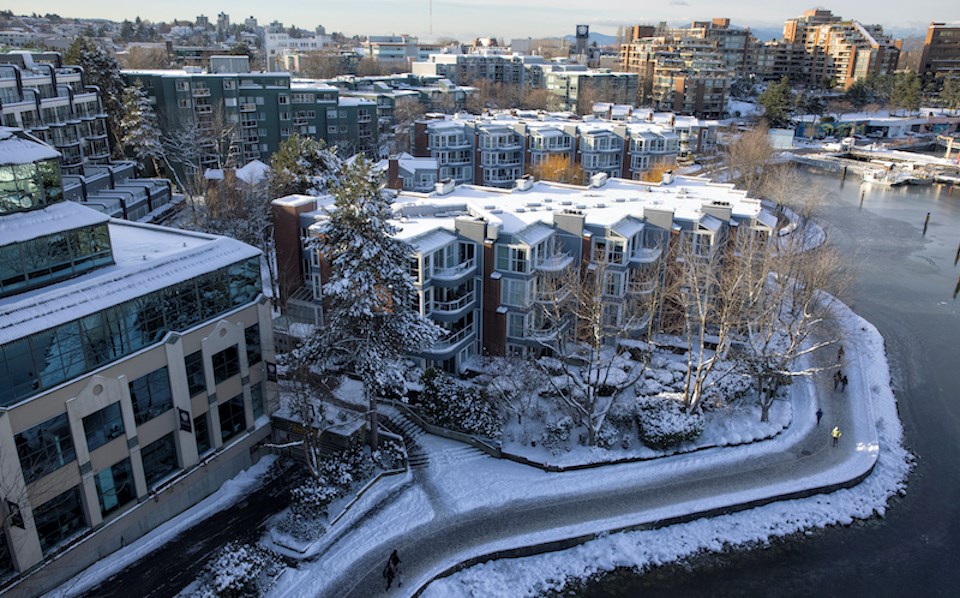Metro Vancouverites might get a milder fall followed by a wet, cold winter...but there could be many surprises in both seasons this year.
Environment Canada Meteorologist Matt Loney says models indicate autumn (the rest of October and November) should see slightly warmer temperatures and average rainfall. He adds that precipitation is more difficult to predict.
For example, folks looking to plan for Halloween won't know if it will rain until about a week out of the event if not closer to the day of.
"With three weeks there's nothing we can say with certainty," he explains, adding that the overall temperature forecast for October shows a warmer trend but a cold weather system could move into the region by that time.
The meteorologist tells V.I.A. that reporting outside the seven-day forecast doesn't illuminate specific weather events. The department observes a ridge of high-pressure forming in Metro Vancouver, boasting above-average temperatures and sunny conditions ahead of the Thanksgiving Day long weekend.
A pattern of interment rain and slightly below or average temperatures is expected to commence after the weekend.
While the overall fall forecast shows a warmer trend, major weather events, including atmospheric rivers, are only observed seven to 10 days ahead.
Does the Metro Vancouver weather forecast include a warmer trend into the winter?
Meteorological winter begins on Dec. 1, meaning some of November's trends could continue into December.
Loney says it's too early to predict how the winter will play out but some significant phenomena may affect the local climate.
The tropical embassies off South America show cooling waters along the equator in the eastern and central equatorial Pacific Ocean, indicating favourable conditions for a La Niña winter to emerge, according to the National Oceanic and Atmospheric Administration (NOAA).
La Niña winters don't typically start to show their effects until after the winter holidays in Metro Vancouver, meaning they don't don't impact the likelihood of a White Christmas. However, they can also be a boon for alpine enthusiasts who enjoy ski hills flush with champagne powder.
La Niña years are historically wetter and colder in the Lower Mainland, although they may trend closer to seasonal averages.
"Starting in January it can be wet with a chiller winter and decent snow on the hills," Loney notes. Locals might see more snowfall and colder temperatures starting in the new year.
For now, locals should embrace what might feel like a final flourish of summery weather.
Stay up-to-date with hyperlocal forecasts across 50 neighbourhoods in the Lower Mainland with V.I.A.'s Weatherhood.



